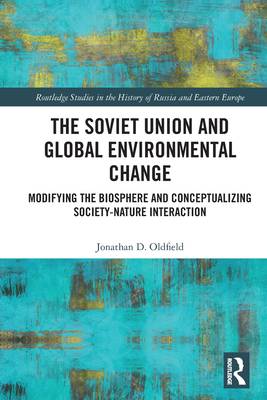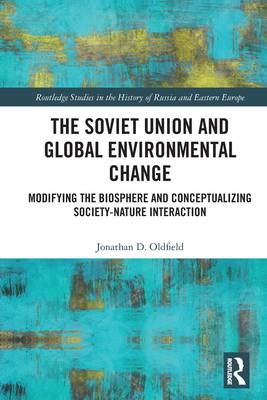
- Retrait gratuit dans votre magasin Club
- 7.000.000 titres dans notre catalogue
- Payer en toute sécurité
- Toujours un magasin près de chez vous
- Retrait gratuit dans votre magasin Club
- 7.000.0000 titres dans notre catalogue
- Payer en toute sécurité
- Toujours un magasin près de chez vous
The Soviet Union and Global Environmental Change
Modifying the Biosphere and Conceptualizing Society-Nature Interaction
Jonathan D OldfieldDescription
This book argues that the Soviet Union was a highly influential actor in furthering understandings of society-nature interaction on the international stage and played a key role in helping to shape, conceptualize and assess the relationship between humankind and the Earth system. It considers how humankind's capacity to affect physical and biological systems at a global scale was acknowledged and studied by Soviet scientists, discusses how the interaction between Soviet and Western scientists stimulated the development of new technologies and insights, which simultaneously facilitated a more profound understanding of the Earth's physical and biological systems, and explores how Soviet scientists drew upon pre-revolutionary intellectual traditions in order to make sense of society-nature interaction and did so in collaboration with a range of international initiatives. Overall, the book provides a deep analysis of how Soviet scientists conceptualized society-nature interaction and influenced the understanding of global physical and biological systems. Furthermore, it is argued that this intellectual legacy remains of importance today with respect to the activities of Russian science and contemporary global environmental challenges.
Spécifications
Parties prenantes
- Auteur(s) :
- Editeur:
Contenu
- Nombre de pages :
- 142
- Langue:
- Anglais
- Collection :
Caractéristiques
- EAN:
- 9780367745929
- Date de parution :
- 09-01-23
- Format:
- Livre broché
- Format numérique:
- Trade paperback (VS)
- Dimensions :
- 156 mm x 234 mm
- Poids :
- 226 g

Les avis
Nous publions uniquement les avis qui respectent les conditions requises. Consultez nos conditions pour les avis.






